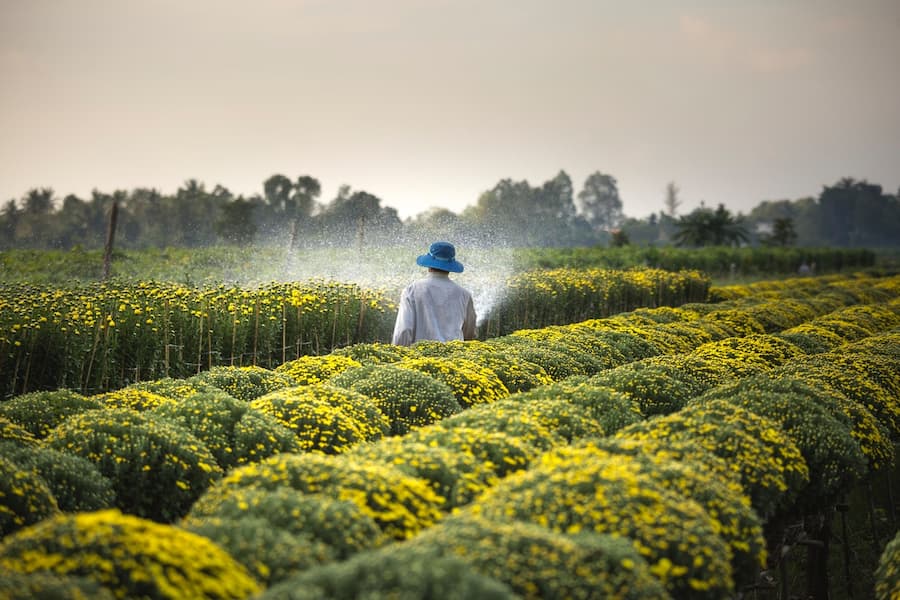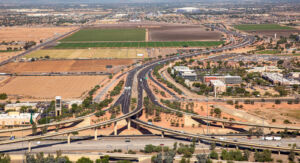The global agricultural market is incredibly complex and always in evolution. In recent years, the number has increased – and is conflicting! – consumer demand has entirely disrupted the market. Today’s consumers have precise standards that need to be met, in terms of sustainability, humane livestock treatments, and origin.
At the same time, end-users expect all-year-around availability of international products. This has caused the supply chain to swell overnight, which hasn’t happened without a substantial share of risks.
While these changes might seem excessive, technology is there to support this evolution. Thanks to product traceability solutions and smart packaging technologies, today’s farmers can not only expand their operation but also do so while guaranteeing quality, safety, and consistency to their customers. Here’s how.
Today’s Global Agricultural Market
Over the past years, the world’s population has grown rapidly, thus causing the demand for food to skyrocket. Because of this, the US agricultural market is set to reach a whopping value of nearly 10 billion US dollars by 2028, growing at a CAGR of over 28% over the next six years.
On a global scale, and when considering the revenue deriving from the entire operation, the agriculture industry is contributing over 2.4 trillion US dollars to the world’s economy.
Undoubtedly, the sector is set to continue growing to meet the increasing demand for food. At the same time, this overnight swell has come with substantial risks and challenges.
The Risks Threatening Today’s Agricultural Market
While the agriculture market is actively contributing to each country’s GDP, there are some threats that cannot be ignored:
• Estimations tell us that 10-25% of agricultural products on the market are fraudulent imitations or counterfeits.
• Products for agriculture that are not authentic are not tested, certified by local laws, and in some cases, illegal
• Agricultural chemicals, pesticides, and other substances, if counterfeit, can be harmful to human health and damaging to crops, soils, and wildlife.
• Using counterfeited agricultural goods for treating crops and vegetation can be ineffective
• Counterfeited goods are directly related to loss of jobs, lower R&D investments, and lower tax collection
• Counterfeited goods and agricultural products can represent a significant health concern for consumers, especially when livestock and animal products are involved.
The Benefits of Product Authentication and Traceability in Agriculture
Custom product authentication solutions and track-and-trace technologies – such as the ones designed by authena.io – can play a vital role in combating counterfeit, fraudulent imitations, and illegal agricultural products.
Here’s what to expect from investing in these emerging, cutting-edge technologies for your agricultural business.
Tracking and Locating Products
As agricultural production intensifies around the globe, farmers and business managers need far greater quantities of agricultural products, chemicals, seeds, and pesticides. This increased demand has caused the agricultural counterfeit product market to thrive, thus undermining product quality and creating a significant public health risk.
Thanks to track-and-trace smart packaging solutions, farmers can gain better control over the products used. Technology-enhanced packaging systems are complete with RFID (Radio Frequency Identification) and NFC tags, which can help business owners manage their supply chain and elevate security standards.
These tags, alongside barcodes, QR codes, and smart labels, can be scanned through a smart device and deliver information about the agricultural product’s manufacturing, distribution, authenticity, and delivery in a matter of seconds.
Protect Products From Supply Chain Vulnerabilities
Agricultural businesses are located at the very core of a supply chain. They require the support of a network that delivers high-quality, tested products, pesticides, chemicals, and livestock products. In turn, this allows them to deliver high-quality products to retailers, merchants, and FMCG (fast-moving consumer goods) manufacturers.
Being at the center of such a complex system, farms are exposed to a range of vulnerabilities. In particular, finding and sourcing authentic products for their business can be challenging. In this case, smart packaging solutions that allow chemicals, pesticides, seeds, and tools to be traced can lower supply-chain-related counterfeiting risks.
Farmer-Consumer Communication
As the supply chain continues to expand its reach to global markets, consumers are increasingly focused on healthy, authentic, ethical goods – a trend that has also been fuelled by the Covid-19 pandemic.
As consumers become more aware of the destructive impact of intensive animal agriculture on the planet, the influence of pesticides on health, and the importance of finding high-quality, natural, and local foods, it is essential for farmers to enhance their communication standards.
Smart packaging and tracking solutions can help by providing consumers with in-depth, accessible information regarding a product’s journey through the supply chain.
Quality Monitoring
Traceability systems and smart packaging solutions can offer farmers valuable insights into their product’s quality, lifespan, supply chain journey, and stock information. Thanks to these systems, it is easy for business owners to keep track of:
• Usage of seeds, pesticides, and chemicals
• Provenance and composition of chemicals
• Proof of authenticity of products used in agricultural operations
• Stock levels
• Product quality, expiry date, provenance details
System Integration For Streamlined Operations
The use of technologies to enhance the quality and quantity of agricultural products is becoming increasingly widespread. As smart farming takes over, farmers have begun to use technologies such as the Internet of Things, location systems, sensors, AI, drones, and robots to improve crop production, quality, and safety.
When introducing a system to track and trace the quality and authenticity of agricultural products, it is essential for these systems to fully integrate with the other technologies implemented. Once integrated, the systems can help automate and streamline agricultural operations while safeguarding safety and quality standards.
Track-and-Trace Tools For Agricultural Products
There are a variety of track-and-trace and smart packaging tools you can use to create an ad hoc system. These include:
• Athena IoT & blockchain technology
• RFID labels
• Barcodes and QR codes
• Smart labels
• Tamper-proof labels
These solutions, when coupled with anti-peeling and anti-counterfeiting technologies, make it easier for farmers and business owners to verify the quality, status, safety, and authenticity of the agricultural products used in their daily operations. However, it is important to remember that the harder will be the possibility to clone the anti-tampering solution, the safer your products will be. NFC and RFIDs, for instance, are able to resist forgery, whilst Barcodes and QR codes, being visible to everyone, could be easily copied.
Traceability Solutions for a More Sustainable Agriculture
As the global demand for food continues to skyrocket, the world’s agricultural market strives to create enough supply. However, this has caused farmers and business owners to overlook sustainability practices to increase production.
Thanks to new traceability systems and climate-smart agricultural practices, today’s agricultural businesses can increase production while safeguarding product safety, sustainability, and environmental welfare.




